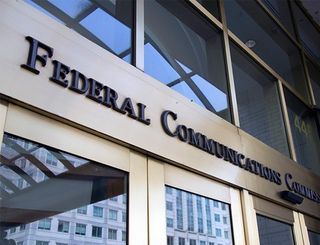FCC Denies MMTC Request to Change EAS Rules

The FCC has denied the letter, but, it signaled, not the spirit, of a petition by the Minority Media & Telecommunications Council, the Independent Spanish Broadcasters Association and the Office of Communication of the United Church of Christ to make changes to its Emergency Alert System (EAS) rules to insure non-English speakers get timely information from broadcasters and cable operators.
"Although we do not find that the facts and record support the Petitioners’ proposed...rule revisions," the FCC said, "we find that the reporting requirements adopted in this item will, by other means, provide information that may facilitate the dissemination of multilingual local, state and national emergency information via the EAS."
The FCC said in the order, released Wednesday (March 30), that it would was "reaffirm[ing] our commitment to promoting the delivery of Emergency Alert System (EAS) alerts to as wide an audience as technically feasible, including to those who communicate in a language other than English or may have a limited understanding of the English language."
The FCC will require State EAS plans to include "a description of the manner, if any, in which EAS Participants (including broadcasters, cable systems, and other service providers) make available EAS alert message content to persons who communicate in languages other than English." The "may" in that requirement means it only applies to participants who deliver those messages, rather than requiring them to do so.
The FCC will require EAS Participants to furnish information to State Emergency Communications Committees (SECC) upon SECC request so that the SECCs can compile this data and submit it as part of their State EAS Plan."
That includes:
• "A description of any actions taken by the EAS Participant (acting individually, in conjunction with other EAS Participants in the geographic area, and/or in consultation with state and local emergency authorities), to make EAS alert content available in languages other than English to its non-English speaking audience(s);
Broadcasting & Cable Newsletter
The smarter way to stay on top of broadcasting and cable industry. Sign up below
• "A description of any future actions planned by the EAS Participant, in consultation with state and local emergency authorities, to provide EAS alert content in languages other than English to its non-English speaking audience(s), along with an explanation for the EAS Participant’s decision to plan or not plan such actions; and
• "Any other relevant information that the EAS Participant may wish to provide, including state-specific demographics on languages other than English spoken within the state, and identification of resources used or necessary to originate current or proposed multilingual EAS alert content. In particular we urge EAS Participants and SECCs to include any pilot projects or other initiatives that involve translation technologies or other innovative approaches to providing non-English alerts and emergency information to the public."
But what the FCC did not agree to do, and what the petitioners had asked, was require "all Presidential level messages in both English and Spanish"; have a designated Spanish language station for alerts; have a primary multilingual station where a substantial portion of the audience primarily speaks a language other than English or Spanish; that at least one station in every market would monitor and rebroadcast those primary stations, and that if those primaries go off the air, stations still on the air would need to carry those multilingual and Spanish-language alerts
In May 2013, saying it wanted action before the start of the hurricane season, MMTC and the other groups asked the FCC for revisions to its emergency alert system (EAS) system "to provide for the dissemination of multilingual local, state and national emergency information via the EAS to ensure that non-English speaking persons will have access to the same information as their English speaking neighbors in an emergency."
MMTC has been pressing its case for multilingual EAS for years, pointing out back in 2008 that it had been, then, three years since Katrina with no FCC action on multilingual warnings.
Contributing editor John Eggerton has been an editor and/or writer on media regulation, legislation and policy for over four decades, including covering the FCC, FTC, Congress, the major media trade associations, and the federal courts. In addition to Multichannel News and Broadcasting + Cable, his work has appeared in Radio World, TV Technology, TV Fax, This Week in Consumer Electronics, Variety and the Encyclopedia Britannica.

